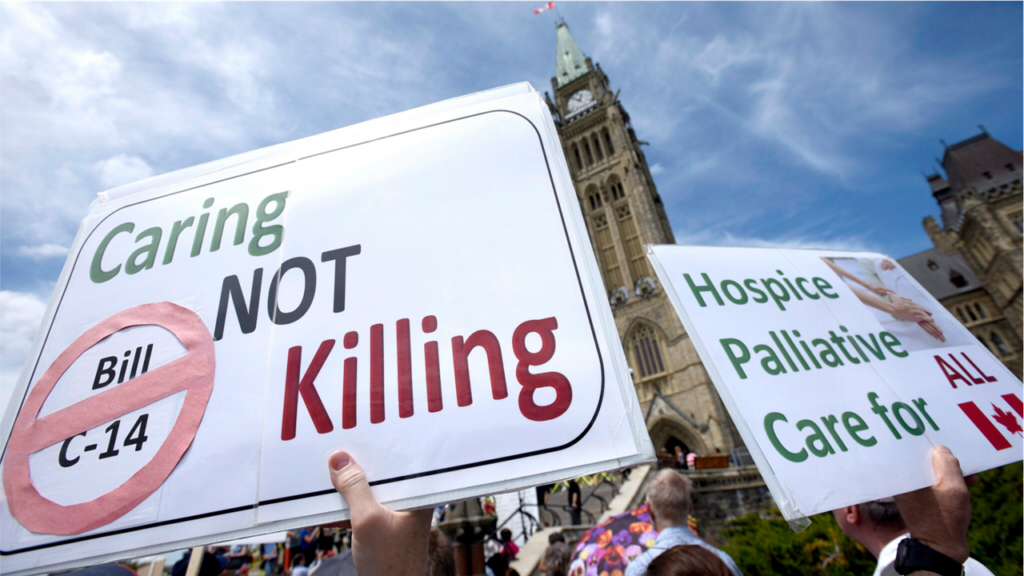‘I Just Get So Angry’: Dad of West Texas Child Who Died Talks to CHD.TV
Source: Children’s Health Defense
The father of the 8-year-old West Texas child who died in a hospital from a hospital-acquired pneumonia after testing positive for measles shared his story in an interview with Children’s Health Defense’s (CHD) Polly Tommey and Brian Hooker, Ph.D.
Peter Hildebrand’s daughter Daisy died on April 3 at the University Medical Center (UMC) Children’s Hospital in Lubbock, Texas.
In the months before her death, Daisy was treated at three different Texas hospitals for several illnesses, including mononucleosis, strep, community-acquired pneumonia, measles and hospital-acquired pneumonia.
Texas Department of State Health Services (DSHS) called her death the state’s “second measles death.”
However, doctors who analyzed her medical records said the child died from acute respiratory distress “secondary to hospital-acquired pneumonia,” which she likely developed during one of her hospital stays.
Hildebrand said measles was “absolutely not” what caused his daughter’s death. “That’s exactly why I’m doing this interview,” he said, “so hopefully people can understand that.”
He attributed her death to poor hospital care.
“I feel that if they would’ve cared the way they should, that my daughter would still be here and I wouldn’t have to be on this interview right now about her. Every single time I think about all that, I just get so angry.”
On Monday’s episode of “Good Morning, CHD,” Tommey, CHD.TV program director, and Hooker, CHD chief scientific officer, showed footage of their April 11 interview with Hildebrand.
But before rolling the film, Tommey emphasized to viewers the importance of listening to parents like Hildebrand. “This is straight from the parents’ mouth of what happened to their children … we can trust the parents.”
Daisy was the eldest of Hildebrand and his wife’s three children. Before her illness, “she was a very healthy girl … she was always happy,” her father said.
The first sign of illness appeared when she began “getting sick with her tonsils.” That lasted a week or two.
The family had planned a trip to Mexico. “We were going to leave her at my parents,” Hildebrand said.
But Daisy told him, “No, I want to go on that trip.”
“So we ended up taking her, but boy did I regret ever taking that trip,” he said.
While in Mexico, Daisy’s eyes became red and sore. When the family returned home, her symptoms worsened “until her breathing started getting bad, and we went and picked up the oxygen machine,” Hildebrand said.
The family first took her to a hospital in Seminole on Jan. 13, where she was diagnosed with strep throat and also mononucleosis. “The doctor gave her a steroid shot” and sent her home.
Over the following weeks, things “just started going downhill from there,” Hildebrand said. “That’s when we had to go to Covenant.”
Hospital releases Daisy while sick with pneumonia, without at-home antibiotics
On March 18, at Covenant Children’s Hospital in Lubbock, doctors diagnosed Daisy with community-aquired pneumonia and placed her on two different antibiotics, said Hooker, who reviewed Daisy’s medical records. At that time, she was not diagnosed with measles.
The next day, Covenant released Daisy, saying she still had pneumonia but that it was something the parent could treat at home. However, the staff did not instruct Daisy to continue with antibiotics and did not give her other treatments, such as steroids, to use at home.
“That was kind of weird to me,” Hildebrand said. “I mean, we went to the hospital to get her treated so she would be better.”
Daisy didn’t get better at home. Disappointed with the care she had received at Covenant, her parents took her to UMC on March 21.
She was quickly admitted to the intensive care unit (ICU), where she was given antibiotics and some steroids.
The parents repeatedly requested she be given budesonide, a steroid used to relieve inflammation affecting the airways, but the hospital refused. “They just kept saying that the other breathing treatment was better and I didn’t believe it,” Hildebrand said.
On March 24, UMC diagnosed Daisy with measles using a PCR test. The same day, the hospital released her.
“Then it just got worse again,” Hildebrand said. “So we went to Dr. Phil Claybrooke in Midland, Texas.”
‘So focused on the measles they didn’t think about testing for anything else’
Claybrooke told them to take Daisy to the emergency room because she needed “higher technology” oxygen support than he was able to provide.
On March 27, Daisy was readmitted to UMC. The staff put her on what Hildebrand called a “high-pressure” oxygen mask, different from the one staff used during her first UMC visit.
“To this day I don’t know why,” he said. “That first UMC visit, they put high-flow oxygen on her and that seemed to work all right. But this time, they went straight to the high-pressure mask.”
Over the next few days, Daisy “gradually declined.”
Then “all of a sudden the doctor says that her lungs started leaking air just because of the high-pressure mask, and we didn’t know what else to do but get her intubated.”
According to Hildebrand, Daisy’s doctor was overly focused on her measles infection and overlooked the possibility that a hospital-acquired bacterial pneumonia might be impeding her respiratory function.
“That last doctor we had, he just kept going on and on about measles this and measles that,” Hildebrand said. “He was trying to blame everything on the measles … They were so focused on the measles that they didn’t think about testing for anything else, and that is why my daughter is dead today.”
As The Defender reported, it wasn’t until days into her second UMC stay that the staff did what’s called a sputum culture to identify the specific bacteria, fungi or other germs in her lungs.
The test showed Daisy’s lungs had an E. coli bacteria superbug that was highly antibiotic-resistant, and that she likely contracted during her first ICU stay, according to Dr. Pierre Kory. Kory, who has extensive experience in pulmonary and critical care medicine, analyzed Daisy’s medical records from UMC.
However, the sputum culture results didn’t come back until 10 p.m. on April 2. By that time, Daisy was already on a ventilator.


This article was funded by critical thinkers like you.
The Defender is 100% reader-supported. No corporate sponsors. No paywalls. Our writers and editors rely on you to fund stories like this that mainstream media won’t write.
At roughly 1:50 a.m. on April 3, Daisy passed away. Hildebrand and his wife were with her. “It was very hard,” he said.
Hildebrand’s advice to parents of a sick child who feel they need to take their child to a hospital was to “just make sure you go to a hospital that takes care of the people.”
During their multiple hospital visits, staff repeatedly asked Hildebrand if Daisy was vaccinated. He told them she was unvaccinated.
Tommey asked Hildebrand if he regretted not giving the measles, mumps and rubella, or MMR vaccine, to Daisy. “Absolutely not,” he said, saying he wasn’t scared of measles.
“These foolish doctors are the ones that kill people — and I’m not speaking bad about all the doctors, but I am speaking bad about the ones that were so foolish on Daisy’s care.”
Now, nothing can bring Daisy back. “I still don’t see the daylight of tomorrow, and I don’t know that I ever will … It’s going to be hard moving forward. I know that for sure. But I guess that’s our only option.”
Watch the interview on CHD.TV here:
Related articles in The Defender
- 8-Year-Old in West Texas Died From Hospital-acquired Pneumonia, Medical Records Show
- CHD.TV Exclusive: Parents of Child Who Died During Texas Measles Outbreak Speak Out
- Exclusive: Mennonite Community in Texas Is ‘Frustrated’ by Media Coverage of Measles Outbreak
- Exclusive: ‘Just Normal Doctoring’ — a Texas Doctor’s Eyewitness Report on Measles Outbreak
- Media Panic Over Measles Distracts From Real Threats to Kids’ Health and Safety














